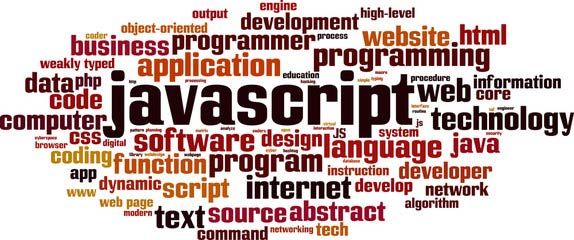
Top 15 JavaScript Interview Questions and Their Answers
According to a survey done by Stack Overflow, JavaScript is the most popular programming language in the world. People looking for a job as JavaScript coders should acquaint themselves with a JavaScript tutorial. If you want to learn Javascript, you will be interested in the following commonly asked interview questions:
Question 1. What is functional programming?
Answer: Functional programming is an essential concept in JavaScript. This type of programming does not allow for shared state & mutable data. It helps in creating programs by composing mathematical functions.
Question 2. What are the benefits of using JavaScript?
Answer: Some major benefits of JavaScript are listed below:
- 1. Rich Interfaces: JavaScript has functionalities like drag-and-drop blocks and stylized sliders. There are a number of ways in which JavaScript can be used to enhance a website’s UI/UX.
- 2. Lightweight: It can be executed within the user’s browser without having to communicate with the server, saving on bandwidth.
- 3. Multi-purpose: JavaScript supports multiple programming concepts—object-oriented, imperative, and functional programming and can be used on both front-end and server-side technologies.
- 4. Prototypal Inheritance: Objects can inherit from other objects. This makes JavaScript perfect for dynamic applications.
Question 3. How is prototypal inheritance different from classical inheritance?
Answer: The major distinction between prototypal inheritance and classical inheritance is:
Classical Inheritance: A constructor function instantiates an instance via the “new” keyword. This new instance inherits properties from a parent class.
Prototypal Inheritance: An instance is created by cloning an existing object that serves as a prototype. This instance is generally instantiated using a factory function or “Object.create()”. The instance can benefit greatly with selective inheritance from different objects.
Question 4. Which are the different types of prototypal inheritance?
Answer: The three types of prototypal inheritance:
- 1. Delegation
- 2. Concatenative
- 3. Functional
Question 5. What is the significance of, and reason for, wrapping the entire content of a JavaScript source file in a function block?
Answer: The importance of this practice is that it helps in constructing a closure around the entire contents of the file. It helps in creating a private namespace and helps in avoiding potential name clashes between different JavaScript modules and libraries.
Question 6. What are two-way data binding and one-way data flow, and how are they different?
Answer: Two-way data binding means that the UI fields and the model data are connected to each other in such a way that when one changes, the other changes with it.
One-way data flow is the model that represents single source of truth.
Question 7. What are JavaScript Data Types?
Answer: The different types of JavaScript Data types are:
- 1. Boolean
- 2. Function
- 3. Number
- 4. String
- 5. Object
- 6. Undefined
Question 8. What is the use of isNaN function?
Answer: The isNan function can be used for returning true if the argument is not a number. When the argument is not true, it returns false.
Question 9. Between JavaScript and an ASP script, which is faster?
Answer: ASP is aserver side langiage and JavaScript is a client side language, that is why Javascript, never having to rely on a web server, is faster.
Question 10. What is negative infinity?
Answer: Negative Infinity is a number in JavaScript, which can be derived by dividing negative numbers by zero.
Question 11. Which company developed JavaScript?
Answer: Netscape.
Question 12. What are global variables?
Answer: Global variables are those that are available throughout the length of the code, that is, these have no scope.
Question 13. What is a prompt box?
It is a text box where users can provide input. Label and box will be provided to enter the text or number.
Question 14. What is ‘this’ keyword in JavaScript?
‘This’ keyword refers to the object from where it was called.
Question 15. What is the difference between ViewState and SessionState?
Answer: The difference between ViewState and SessionState is:
- 1. ‘ViewState’ is specific to a page in a session.
- 2. ‘SessionState’ enables a user to access user specific data across all pages in the web application.
Shape Your Career with QuickStart Training
Knowledge of interview questions alone is not enough for a successful career in IT industry, you also need in-depth knowledge of concepts. With JavaScript tutorial and other well-tested methods, QuickStart helps you in achieving your goals. This renowned training institute has nearly three decade of experience and provides you the perfect learning platform.

